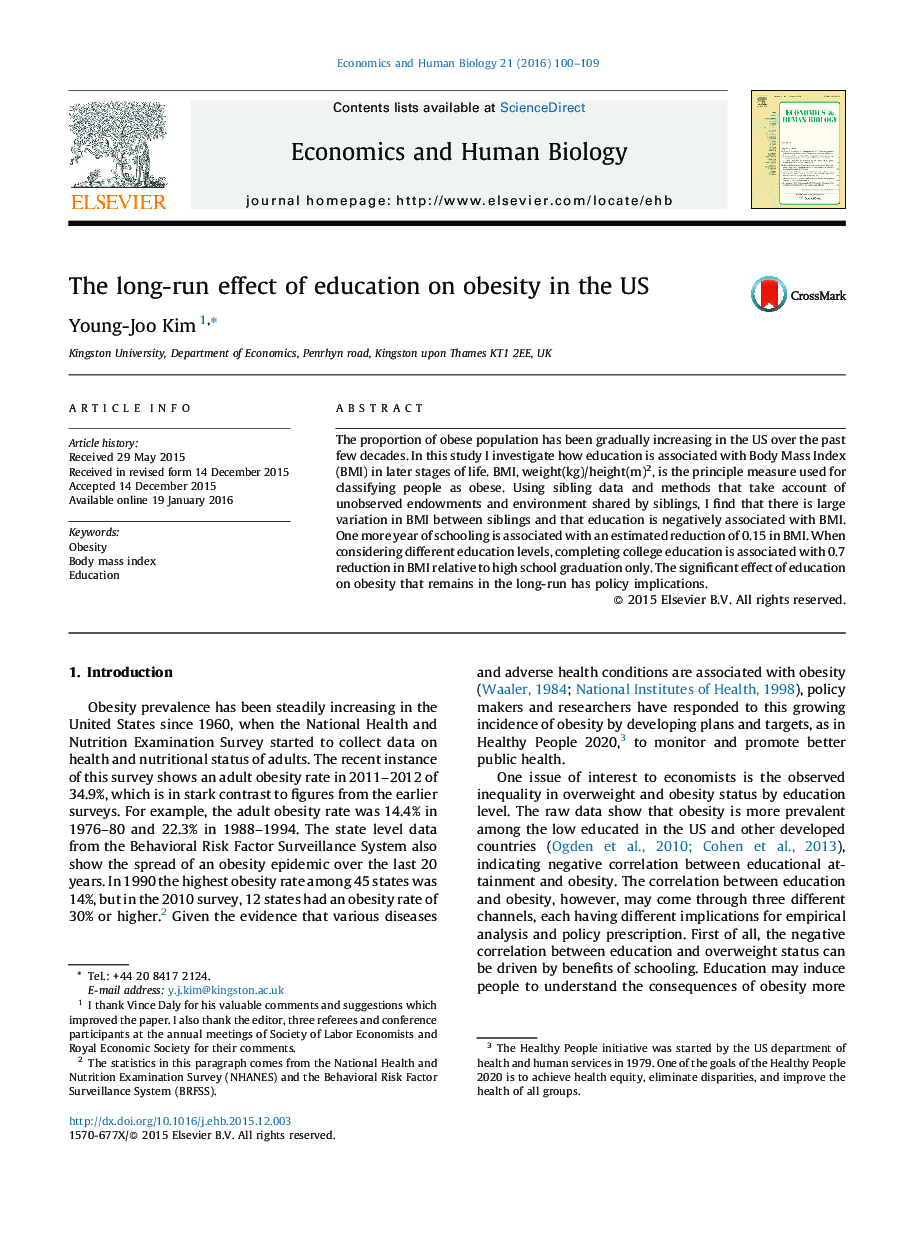| کد مقاله | کد نشریه | سال انتشار | مقاله انگلیسی | نسخه تمام متن |
|---|---|---|---|---|
| 5056856 | 1476558 | 2016 | 10 صفحه PDF | دانلود رایگان |
- The long-run effect of education on BMI is estimated from sibling pairs who reached middle age.
- The analysis is based on data from the Wisconsin Longitudinal Study collected from 1957 to 1993.
- An additional year of schooling is associated with a 0.15 reduction in BMI.
- The negative effect of education is robust across various sibling types and methods.
The proportion of obese population has been gradually increasing in the US over the past few decades. In this study I investigate how education is associated with Body Mass Index (BMI) in later stages of life. BMI, weight(kg)/height(m)2, is the principle measure used for classifying people as obese. Using sibling data and methods that take account of unobserved endowments and environment shared by siblings, I find that there is large variation in BMI between siblings and that education is negatively associated with BMI. One more year of schooling is associated with an estimated reduction of 0.15 in BMI. When considering different education levels, completing college education is associated with 0.7 reduction in BMI relative to high school graduation only. The significant effect of education on obesity that remains in the long-run has policy implications.
Journal: Economics & Human Biology - Volume 21, May 2016, Pages 100-109
